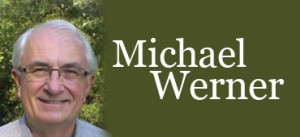Believe Racial Justice is Possible

JUST ABOUT EVERYONE working on antiracism today is frustrated. The country as a whole—black, white, liberal, and conservative—has descended a staircase of despair, apathetic or exhausted from trying to motivate positive change.
Professional antiracism has become a cottage industry using the same failing strategies and worn-out messages where many of those involved are privileged and wouldn’t have a clue how to relate to a drug dealer, for example, or a Mississippi delta farmer, or a long-term unemployed, handicapped black person.
When was the last time you really engaged in meaningful conversation with or actually entered the home of someone of another race and socioeconomic condition? When we do engage in personal, honest dialogue with another person, magic happens. Real change can occur. However, with lack of success we tend to hunker down safe in our little echo chambers. The Internet further allows people to retreat into angry, balkanized silos.
Many liberals who really understand white privilege are frustrated by those who don’t, but many times are only left with liberal white guilt and no effective change in society. Meanwhile, the message and data on white privilege and subtle racism doesn’t reach those who could really benefit from it. I recently attended an adult class where the majority of people thought there was no such thing as white privilege.
In the black community, frustration has led to immobilizing fatigue, resentment, and despair; fear, self-loathing, and real helplessness combines with a learned helplessness. My heart dies every time I see a black youth with downcast eyes—as if his or her spirit has been dashed so soon. The familiar identity of the oppressed is a result of the failure of our society to change.
Meanwhile, we see interracial ministry luncheons where ministers pretend they’re doing something. Many of the black ministers then go back to their congregations, and to keep their powerbase they maintain that white prejudice is the source of all their problems, while the white ministers go back to theirs and preach a more subtle racist message with trigger words like “crime,” “violence,” and “family values.” In truth, traditional black churches and white churches generally do little to break down racial barriers, however, many liberal white and black churches are doing valuable work in this area. Still, religion has always been a profound support for continuing racism.
Humanism has embraced a universalizing tradition affirming the inherent worth and dignity of all people. It is demanding in that it asks us to get beyond our instinctual and learned prejudices and see the common humanity in all of us, thereby widening our circles of compassion.
I have called myself a citizen of the world, but that identity, while noble and sincere, also ignores my subconscious identity as white and Eurocentric. No one can escape their subconscious prejudices and even those who try know we are bound to failure in some way.
Still, seeing ourselves as only one identity that defines all we are is limiting. Labels stick but never express the full range of who we are as human beings. Transcending our personal boundaries seems the best way to bandage the wounds of injustice and inequity.
We need prophetic new voices willing to challenge the old worn-out, ineffective thinking and touch the hearts of everyone, not just those who “get it.” We need new blood that can evocatively reach everyone’s hearts and minds. Dr. Martin Luther King Jr. was able to do that for the most part, and while I don’t think we need a savior, we do need those who can bring us together in real dialogue and inspire within us a moral duty to engage together in love and our common humanity.
